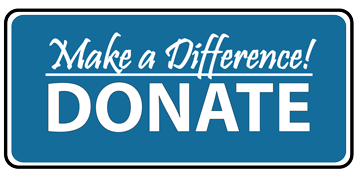Exeter, UK (Special to Informed Comment; Featured) – When the United Arab Emirates (UAE), along with several Arab states such as Bahrain and Morocco, normalized their relationship with Israel, this was believed to create leverage against Israel. Moreover, the UAE claimed this was their attempt to salvage a two-state solution. Indeed, when the UAE signed the normalization agreement with Israel, UAE Minister of State for Foreign Affairs, Dr. Anwar Gargash, celebrated the Israeli halt of the annexation of Palestinian lands as “a significant diplomatic achievement,” which has been concretized thanks to Emirati “normal relations with Israel,” which is expected “to play a direct and constructive role in enhancing the region’s security and stability.”
The commentators were also debating whether the deal would create leverage over Israel in their treatment of Palestinians. For example, Yoel Guzansky and Ari Heistein stated. The UAE has now gained significant leverage over Israel that will factor into Israeli decision-making in the Palestinian arena, particularly when Jerusalem is considering steps that do not align with Emirati interests.
However, contrary to the Emirati claim, Palestinians believe leverage would never come with normalization, but rather, it would only come by rejecting any engagement until the Palestinian state is concrete. Furthermore, Palestinians feared that “if [normalizations are] not conditioned on significant Israeli steps toward enabling the creation of a Palestinian state, [these kinds of normalization] debilitate the Palestinian national project.”
Guzansky and Heistein were also cautious about the Emiratis’ ability to influence the Israeli state. They warned that if it becomes clear that the UAE fails to change Israeli behavior over Palestine, this can hinder further normalization with other states. Guzansky and Heistein stated Should Israel and the UAE engage in a public spat on anything relating to the Palestinian issue, that would likely discourage those Arab or Muslim states weighing the prospect of normalization from moving ahead if it becomes apparent that these agreements are unable to influence Israeli policy in that regard.

Three years since normalization: When will leverage arrive?< UAE, the Arab Group & China on Gaza Humanitarian Corridor Resolution | United Nations
Since the UAE and Israel have normalized relations, many symbolic and concrete steps have been taken between the two parties that are evidence of warm relations, from appointing ambassadors to direct flights. However, three years of normalization did not prove much leverage when it came to Emirati influence over Israel’s treatment of Palestinians. As much as it is evidence of the October conflict in which Israel responded disproportionately by claiming over 5,000 Palestinians’ lives, the UAE could not play a significant role in influencing Israel in previous Israeli aggression either. This was the case during Israeli aggression in Sheikh Jarrah
Looking back three years after normalization, Qatar increased its leverage more than the UAE, not because it increased its relations with Israel; instead, it became almost the most significant actor in the Arab world, which has relatively warm ties with Hamas. Qatar’s engagement with Hamas and its close relations with the US gave Doha an intermediary role between Hamas, Israel, and the US. On the other hand, the UAE not only recognized Hamas as a terrorist organization but also questioned the authority of the leader of the Palestinian Authority, as it
What now? Will Saudi Arabia normalize with Israel?<
The recent event showed, one more time, that none of the Muslim/Arab majority states have much leverage over Israel when it comes to ceasing the tension and decreasing the violence against Palestinians. Not only the UAE and other Arab countries, which normalized in post-2020, but also countries such as Turkey, whose relations go back to the founding years of Israel, Egypt, and Jordan, which have decades of recognition and are significant actors for Israeli security, have limited influence, especially in the last few years. Therefore, if these normalizations serve as an example, it would be naive to think that Saudi normalization will have a different fate.
It was reported that Saudi Arabia and Israel were in the normalization process when Hamas’s surprise attack occurred on October 7. Saudi Arabia softened its condition from an independent state for Palestinians in 2002 to “a good life for the Palestinians” in 2023, an interpretation that the Israeli occupation is no longer a deal-breaker.
The Biden administration is keen to finalize the deal to kill two birds with one stone. The first bird is US domestic politics. Biden wants a diplomatic achievement that will beat the UAE, Bahrain, Sudan, and Morocco’s normalization with Israel, which was masterminded by Biden’s predecessor and, most likely, his rival in the upcoming presidential election, Donald Trump. The international bird is to make Chinese-brokered Riyadh-Tehran normalization less relevant as the Israel-Saudi alliance might create a stronger anti-Iranian bloc.
However, Saudi Arabia should consider what the UAE has earned and lost domestically and internationally before inking any agreement. Also, even though both states have similar authoritarianism, Saudi Arabia should be more aware of such normalization’s domestic and global reactions. Contrary to the UAE, Saudi Arabia claims leadership for the Islamic world as it hosts the two holiest sites for Muslims and also due to the state’s founding ideology. However, the latter has been eroded in recent years. Therefore, the Saudi Arabian leadership should consider these conditions before committing to any deal.



 © 2025 All Rights Reserved
© 2025 All Rights Reserved